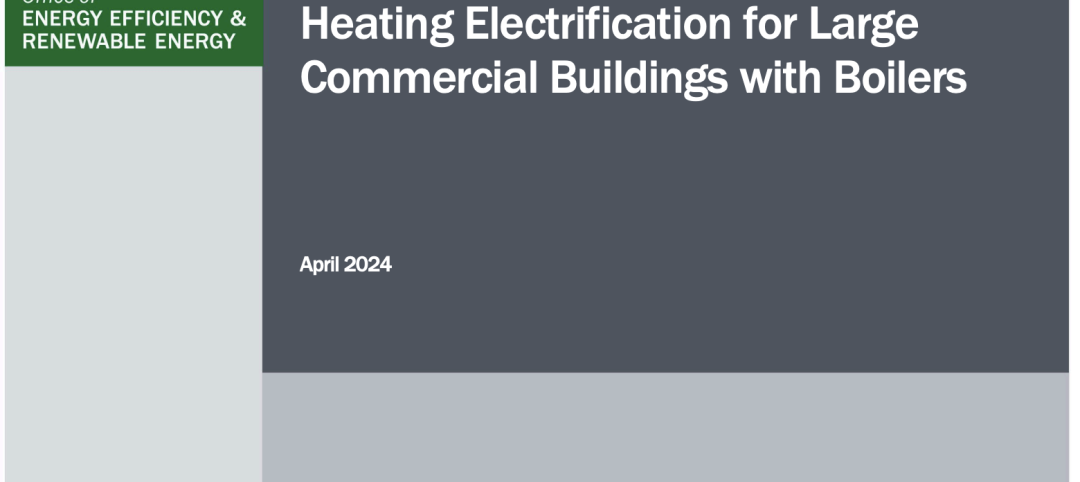New York City recently made over 600 major updates and thousands of smaller changes to its construction codes—the first such wholesale revamping since 2014.
The changes are “intended to improve safety for New Yorkers, and incorporate the latest in building technologies,” according to a statement from the city. “The new codes use the highest international standards for the design, construction, and maintenance of buildings as a baseline, while continuing our city’s proud tradition of implementing additional enhancements to ensure we have among the strongest building regulations anywhere in the world.”
Revisions include:
· Increased material choices available to builders by expanding the use of sustainable building materials such as cross-laminated timber and structural composite lumber.
· Expansion of the applicability of flood zone requirements of the 100-year flood hazard area to all critical facilities (including fire, rescue, ambulance, police stations, and designated emergency shelters) located in the 500-year flood zone.
· Policies to support the use of alternative energy production processes including hydrogen fuel cells.
· Clear compliance criteria for elevator systems to ensure greater accessibility and usability for building occupants with physical and intellectual/developmental disabilities.
· Reduction of the required 8-foot basement clearance height for two-family homes to 7 feet to increase affordable housing opportunities.
· Permission to use netting, low barriers, and chain link fencing in lieu of solid fencing that creates blind tunnels for pedestrians.
· Creation of a new license type for advanced crane technology, such as articulating boom cranes and roto-telehandlers.
The updated code requirements will go into effect next year, with some regulations taking effect on Jan. 1, 2022.
Related Stories
HVAC | May 28, 2024
Department of Energy unveils resources for deploying heat pumps in commercial buildings
To accelerate adoption of heat pump technology in commercial buildings, the U.S. Department of Energy is offering resources and guidance for stakeholders. DOE aims to help commercial building owners and operators reduce greenhouse gas emissions and operating costs by increasing the adoption of existing and emerging heat pump technologies.
MFPRO+ News | May 24, 2024
Austin, Texas, outlaws windowless bedrooms
Austin, Texas will no longer allow developers to build windowless bedrooms. For at least two decades, the city had permitted developers to build thousands of windowless bedrooms.
Resiliency | May 24, 2024
As temperatures underground rise, so do risks to commercial buildings
Heat created by underground structures is increasing the risk of damage to buildings, recent studies have found. Basements, train tunnels, sewers, and other underground systems are making the ground around them warmer, which causes soil, sand, clay and silt to shift, settle, contract, and expand.
MFPRO+ News | May 21, 2024
Massachusetts governor launches advocacy group to push for more housing
Massachusetts’ Gov. Maura Healey and Lt. Gov. Kim Driscoll have taken the unusual step of setting up a nonprofit to advocate for pro-housing efforts at the local level. One Commonwealth Inc., will work to provide political and financial support for local housing initiatives, a key pillar of the governor’s agenda.
Building Tech | May 21, 2024
In a world first, load-bearing concrete walls built with a 3D printer
A Germany-based construction engineering company says it has constructed the world’s first load-bearing concrete walls built with a 3D printer. Züblin built a new warehouse from a single 3D print for Strabag Baumaschinentechnik International in Stuttgart, Germany using a Putzmeister 3D printer.
MFPRO+ News | May 20, 2024
Florida condo market roiled by structural safety standards law
A Florida law enacted after the Surfside condo tower collapse is causing turmoil in the condominium market. The law, which requires buildings to meet certain structural safety standards, is forcing condo associations to assess hefty fees to make repairs on older properties. In some cases, the cost per unit runs into six figures.
Codes and Standards | May 10, 2024
California law that ended single-family zoning is struck down by court
A law ending single-family-home-only zoning in California was ruled unconstitutional by a Los Angeles County Superior Court judge. The decision could lead to the law being invalidated in the state’s largest cities.
Sustainability | May 10, 2024
Perkins&Will’s first ESG report discloses operational performance data across key metrics
Perkins&Will recently released its first ESG report that discloses the firm’s operational performance data across key metrics and assesses its strengths and opportunities.
Codes and Standards | May 10, 2024
Guide on electrifying space heating for large commercial buildings with boilers released
The U.S. Department of Energy has released a guide on electrifying space heating for large commercial buildings with boilers. The guide summarizes key considerations for people seeking to retrofit existing large commercial and multifamily buildings, particularly those that currently heat spaces using fossil fuel-fired boilers.
MFPRO+ News | May 10, 2024
HUD strengthens flood protection rules for new and rebuilt residential buildings
The U.S. Department of Housing and Urban Development (HUD) issued more stringent flood protection requirements for new and rebuilt homes that are developed with, or financed with, federal funds. The rule strengthens standards by increasing elevations and flood-proofing requirements of new properties in areas at risk of flooding.

















